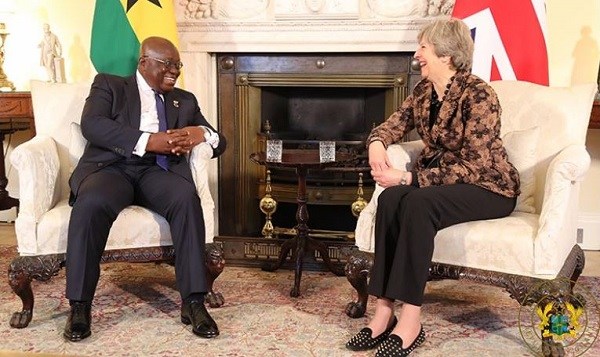
The United Kingdom has taken the blame for introducing anti-gay laws in former colonies such as Ghana.
The UK government says it is thus ready to help such countries rewrite their laws to accommodate gays.
The British Prime Minister, Theresa May, while addressing the Commonwealth heads of government meeting in London on Tuesday said she “deeply regrets” the UK’s role in introducing the anti-gay laws.
She said the UK’s role seems to have resulted in a “legacy of discrimination, violence and even death,” in some of its former colonies.
Most former colonies of Britain frown against homosexuality and have as part of measures to curtail it, introduced criminal laws against it.
In some extreme cases, citizens in those countries lynch persons suspected to be gays or lesbians.
According to Reuters news agency, colonial-era homophobic laws are still used in 37 of the Commonwealth’s 53 member nations.
Theresa May, while addressing the gathering in the UK, said, “I’m all too aware that these laws were often put in place by my own country. They were wrong then, and they are wrong now.”
She praised member countries which had recently decriminalized homosexuality.
She added that “Yet there remains much to do…Nobody should face discrimination and persecution because of who they are or who they love. The UK stands ready to support any Commonwealth nation wanting to reform outdated legislation that makes such discrimination possible,” she said.
President Akufo-Addo was not at the meeting when the speech was delivered.
President Akufo-Addo in a recent interview with Aljazeera said Ghana was not keen on legalizing homosexuality but said his government might reconsider its position if there is general pressure and demand for it by the populace.
“This is a social, cultural issue, I don’t believe that in Ghana so far, a sufficiently strong coalition has emerged which is having that impact on public opinion that will say ‘change it, let’s now have a new paradigm in Ghana,” Akufo-Addo said.
At the moment, I don’t feel; I don’t see that in Ghana there is that strong current of opinion that is saying this is something we need to deal with. It is not so far a matter that is on the agenda,” he added.
While citing the UK as an example, Akufo-Addo said, “I grew up in England at the time that homosexuality was banned there. It was illegal, and I lived a period where British politicians thought it was an item not to even think about. But suddenly the activities of individuals and groups, a certain awareness, a certain development grew and grew stronger, and it forced a change in the law. I believe that those are the same processes that will bring about changes in our situation,” he added.
Anti-homosexuality laws in Ghana
Although there are no specific laws against homosexuality in Ghana, the country frowns on all sexual acts it deems ‘unnatural’.
Chapter 6 of the Criminal Code, 1960, as amended by the Criminal Code Act, 2003, cautions against unnatural carnal knowledge.
Section 104 states “whoever has unnatural carnal knowledge of (a) any person of the age of sixteen years or over without his consent shall be guilty of a first-degree felony and shall be liable on conviction to imprisonment for a term of not less than five years and not more than twenty-five years; or
(b) of any person of sixteen years or over with his consent is guilty of a misdemeanour, or (c) of any animal is guilty of a misdemeanor
Homosexuals in Ghana are therefore unable to express their sexuality in public, and their calls to lawmakers to amend the law to make provision for them have been ignored.

